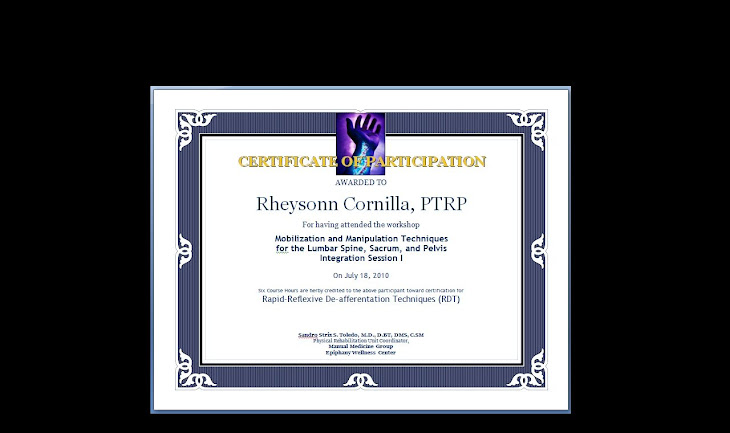Reflexive Antagonism
From Wikipedia, the free encyclopedia
Reflexive Antagonism is the phenomenon by which muscles with opposing functions tend to antagonistically inhibit each other. When one muscle is activated, its opposite muscle or muscle group or is reflexively inhibited or deactivated.
Reflexive antagonism is the basic original notion behind indirect muscle energy techniques. While this notion is now understood to be incomplete, the clinical mechanism of Reflexive Antagonism continues to be useful in widespread Osteopathic and OMT-derived practice. Reciprocal Inhibition is a synonym. (See Entry under Muscle Energy Techniques)
Techiques that utilize reflexive antagonism, (such as Rapid De-Afferentation Techniques) are manual medicine techniques and protocols that utilize reflexive pathways and the phenomenon of reciprocal inhibition as a means of switching off inflammation, pain, and protective spasm for entire synergistic muscle groups or singular muscles and soft tissue structures.
While widely accepted as a clinical mechanism in Osteopathic Manipulative Medicine / Osteopathic Manipulative Techniques, Reflexive Antagonism form only part of the picture of why Muscle Energy Techniques work. Among reasons cited for further investigation into MET mechanisms the following are most significant: 1. The Reflexive Antagonism phenomenon is now known to be fleeting, incomplete, and weak. By example, when the triceps brachii is stimulated, the biceps is reflexively inhibited. The incompleteness of the effect is related to postural and functional tone. 2. Reflexes in vivo are polysynaptic, with entire muscle groups responding to noxius stimuli (Nociceptive Withdrawal Reflex). A pure Reflexive Antagonism has only been demonstrated in the lab.
Wednesday, December 30, 2009
Subscribe to:
Post Comments (Atom)














Please go to Wikipedia to help make this entry more appropriate and complete.
ReplyDeletehttp://en.wikipedia.org/wiki/Muscle_Energy_Technique